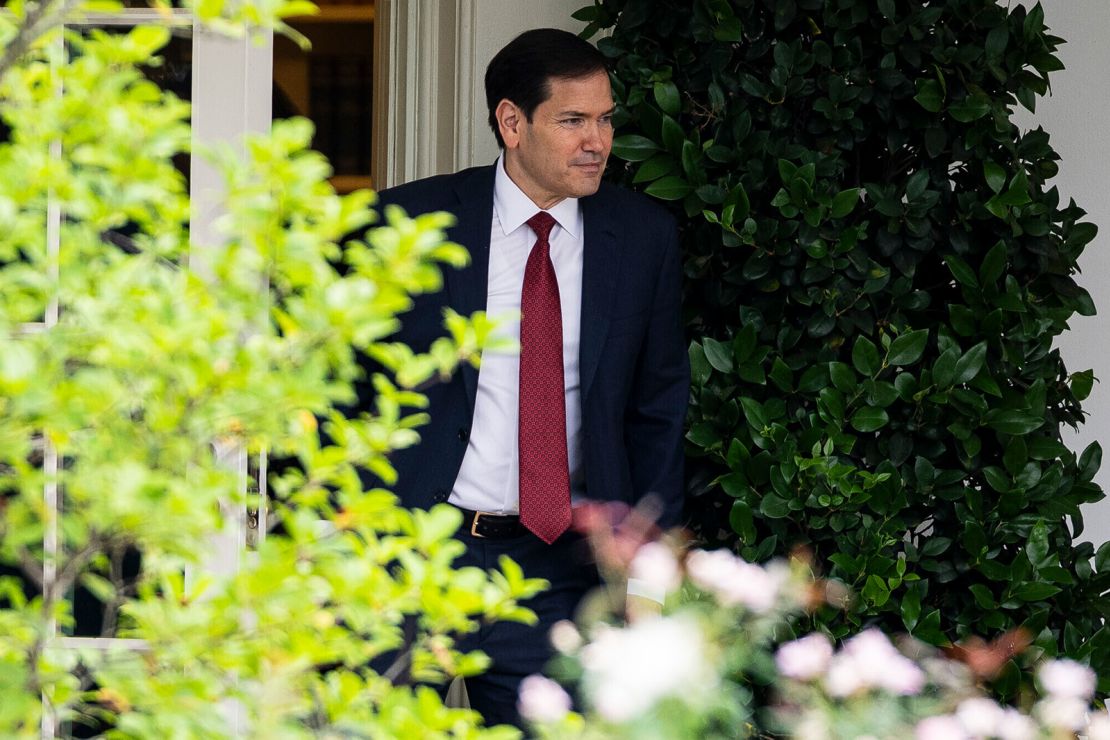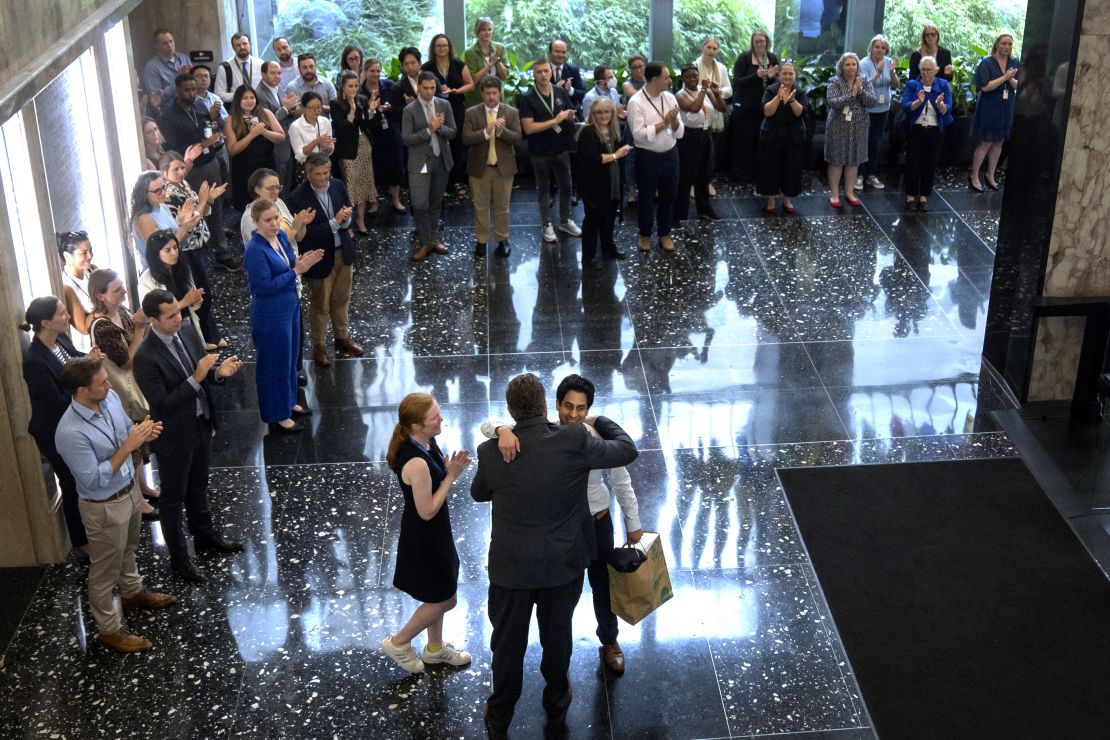CNN
—
The mass firing of State Department employees could significantly impact the Trump administration’s ability to address the priorities it has said it values, multiple former and current department officials told CNN.
Scores of personnel focused on issues the administration has said are no longer priorities were cut last week, including teams dealing with climate change, global women’s issues, educational exchanges, refugees and Afghan resettlement.
But Friday’s reductions in force (RIFS) also impacted offices working on issues prioritized by Secretary of State Marco Rubio, including counterterrorism, stopping drug trafficking, energy diplomacy and mitigating passport and visa fraud.
Political leadership has said the functions will be carried out by other parts of the State Department and were “carefully tailored” to avoid impacting core functions. However, officials warn that a lack of continuity and loss of expertise could be dangerous.
“The loss of so much experience will make it harder for the United States to stop terrorists from successfully launching a major terrorist attack on American soil,” one former State Department official said.

There was also a sense of chaos as the cuts were implemented. Although some of the Washington, DC, offices hit by layoffs had been identified for elimination under the State Department’s reorganization plan, sources who spoke with CNN said many of the firings came as a surprise to even managers.
Others said they had been given little to no guidance from political leadership on how to transition the work of the more than 1,300 fired personnel. A few people received notices they were being fired, only to have those notices rescinded hours later.
The office that assists the families of US citizen employees who die overseas had its entire staff fired, sources told CNN, leaving at least one grieving family in limbo.
Even some personnel from the office that helped to plan the logistics for collecting electronic devices from fired employees – and were doing so on Friday – got notices that they were being laid off.
Numerous personnel who were fired had worked at the agency for decades. Nearly 250 were foreign service officers, including some who already were set to serve in other offices.
“I had one friend who found out while she was midair” and checking something on the airplane Wifi, one former State Department official told CNN.
A senior State Department official said last week that the reorganization “looked at the functions that were being performed, not at individuals.”
In a memo Friday announcing the start of the firings, the State Department said the cuts had been “carefully tailored to affect non-core functions, duplicative or redundant offices, and offices where considerable efficiencies may be found from centralization or consolidation of functions and responsibilities.”
However, sources say it is impossible to isolate the cuts to “non-core functions.”
On issues like consular affairs, personnel processing visas and passports were not fired. However, cuts to other offices may have an impact, sources said.
Rubio had previously said that the State Department might expand the Bureau of Consular Affairs, which is responsible for visas and passports and helping citizens overseas, in order to meet demand for upcoming events in the US like the Olympics and the World Cup.
Top State Department official Michael Rigas on Wednesday told lawmakers that people who “are adjudicating passports, who are doing the customer service work that we want to see continue were not reduced or eliminated.”

However, there were offices within the Consular Affairs bureau that had people fired on Friday.
The cuts come as the administration has applied new levels of scrutiny for those seeking student and exchange visas to the US.
The Bureau of Consular Affairs’ Office of Fraud Prevention Programs saw significant cuts, sources said. That unit works “to protect the integrity of all consular services from fraud,” according to a State Department article from October 2023.
“Effective fraud detection and prevention contributes to U.S. border security, facilitates legitimate travel, and protects U.S. citizens,” the article said.
“It’s hard to square any of this with what the administration has been saying,” another former State Department official said.
They questioned how the bureau would be able to meet demand “when you’re cutting all of the support elements,” like cutting staff on the fraud prevention unit and contract management, as well as canceling assignments for people on their way to fill key posts.
They fear that if the remaining workforce is able to meet the increased demands in the short term by doing multiple jobs, “it’ll just reinforce the idea that we didn’t need any of these positions,” they said, “but in the long term, the amount of damage it’s going to do is real concern to me.”
“The disconnect between what they’re saying and what they’re doing – it’s a gulf,” they said.
Another bureau handling counterterrorism was significantly impacted by the reorganization. Some of its functions are being moved to other parts of the State Department, like bureaus that focus on regional or multilateral issues. Those bureaus may not prioritize counterterrorism, officials warn. Other functions are being eliminated entirely.
The office that focused on countering violent extremism had all of its workforce fired. This included those working to reintegrate foreign terrorist fighters in places like Syria or targeting racially or ethnically motivated violent extremism, such as White supremacist groups.
“Given how this administration loves designating new groups as terrorist organizations, you’d think that counterterrorism would’ve been relatively safe, but it was instead gutted,” another former State Department official said, noting that what remains will be a “watered down” version without the ability to develop strategic plans.
The first former State Department official said that although terrorist designations will continue, the pivot to naming Latin American drug cartels as terrorist groups will increase the workload of those who make such designations.
On energy diplomacy, former officials say there is another disconnect.
Rubio earlier this year testified before Congress that energy will “be at the forefront of policy for the next 100 years.” He said one of the reasons for that is that artificial intelligence requires tremendous energy, which means there will be “strategic opportunities” for nations.
“We need to be at the table to have conversations about not just what our role in energy is but how we help invest or partner with countries that have a supply of energy,” Rubio said.
Rubio acknowledged that the Bureau of Energy Resources would be rolled into the economic bureau at the department as part of the restructuring.
However, another former State Department official who was fired from that office said that the number of people working on energy diplomacy at the department will decrease from about 100 people to 35 people and handicap the department’s ability to deliver on an administration priority.
“Not showing up at international energy conferences will be one repercussion. That means losing out on real business deals. At those meetings we bring the asks of US companies to raise with senior officials from other countries. And at these conferences there is major Chinese participation. If the countries don’t talk to us, they talk to China,” the former official said.
Meanwhile, anger is mounting within the department over the cuts and the way they were handled.
At one employee town hall for one of the impacted bureaus Tuesday, hundreds of anonymous – and angry – questions and comments poured in.
“Colleagues were RIF’d based solely on the position held on a certain day, merit played no role. How do you plan to regain our trust going forward?” one asked.
“It’s hard to hear you ask for patience and team effort, when you decimated our teams and it does NOT sound like there was any advocacy involved to protect us,” another said.
During the town hall those questions from anonymous State Department employees were public for participants to see, but the leadership answering questions largely ignored them before ending the session, officials explained.
A number of townhalls for various branches of the State Department have been held in the days since Friday’s mass firings.

